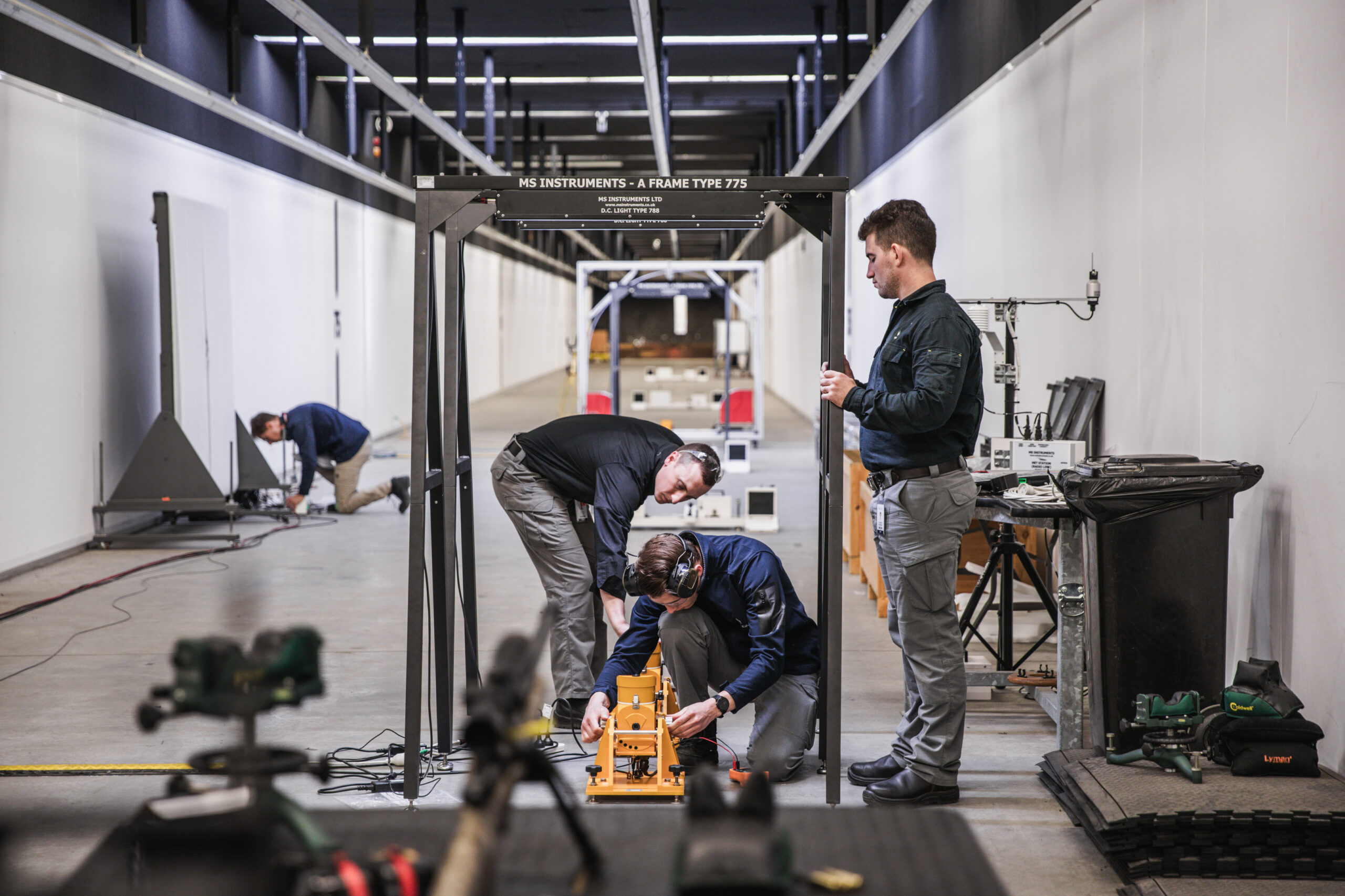MIL-DTL-46100 Armor Steel Hardness Ballistic Verification
The MIL-DTL-46100 standard is a critical document that governs the hardness requirements for armor steel used in military applications. This service ensures compliance with these strict standards through rigorous testing, providing assurance that materials meet or exceed the necessary hardness and ballistic performance.
Hardness testing of armor steel plays a pivotal role in ensuring the reliability and effectiveness of protective gear and systems. The hardness of armor steel directly impacts its ability to withstand impact from high-velocity projectiles without catastrophic failure. This service focuses on verifying the hardness of armor steel plates or components against MIL-DTL-46100 specifications, using advanced testing techniques.
The process begins with careful selection and preparation of specimens for testing. Specimens are typically cut from larger pieces of armor steel to ensure representativeness. The chosen method for hardness testing will depend on the specific requirements outlined in MIL-DTL-46100; common methods include Rockwell hardness testing (HRC) or Vickers hardness testing.
The testing process itself is meticulously controlled, ensuring that all variables are accounted for to yield accurate and repeatable results. The laboratory uses state-of-the-art equipment calibrated according to international standards to conduct these tests. Once the specimens have been tested, the resulting hardness values are compared against the specified limits in MIL-DTL-46100.
Compliance with this standard is not merely a matter of meeting numerical targets; it is about ensuring that materials can withstand real-world conditions and threats. The ballistic performance of armor steel is crucial for protecting personnel and equipment, making this service essential for military and defense contractors alike. By adhering to MIL-DTL-46100 standards, manufacturers can ensure their products are reliable under the most demanding circumstances.
The importance of this testing cannot be overstated, especially in contexts where human lives depend on the performance of protective gear. The service provided here goes beyond mere compliance; it ensures that materials meet or exceed the rigorous demands set forth by MIL-DTL-46100, thereby enhancing overall safety and effectiveness.
Understanding why this test matters is crucial for anyone involved in the procurement, manufacturing, or quality assurance of armor steel used in military applications. The ballistic performance of armor steel is not just a theoretical concern; it has real-world implications that can mean the difference between life and death on the battlefield.
Why It Matters
The ballistic performance of armor steel directly impacts its ability to protect against threats in military applications. Hardness testing ensures that materials meet or exceed the specified hardness requirements outlined in MIL-DTL-46100, which is essential for maintaining reliability and effectiveness.
- Ensures compliance with MIL-DTL-46100 standards
- Guarantees consistent performance across batches of armor steel
- Prevents catastrophic failure under real-world conditions
- Promotes trust in the quality and reliability of protective gear and systems
The results of this testing are critical for maintaining the safety and effectiveness of military equipment, ensuring that personnel can rely on their protective gear when it matters most.
Scope and Methodology
| Specimen Preparation | Testing Methodologies | Acceptance Criteria |
|---|---|---|
| Careful selection of representative specimens from larger pieces of armor steel. | Rockwell hardness testing (HRC) or Vickers hardness testing, depending on the specific requirements outlined in MIL-DTL-46100. | Hardness values must meet or exceed the specified limits as per MIL-DTL-46100. For example, HRC values for armor steel plates may range from 52 to 58 HR. |
| The testing process is meticulously controlled to ensure accurate and repeatable results. | Equipment calibrated according to international standards (ISO, ASTM). | Results are compared against the specified limits in MIL-DTL-46100. |
This service ensures that armor steel specimens meet or exceed the hardness and ballistic performance requirements set forth by MIL-DTL-46100. The table above summarizes the key elements of our scope and methodology, providing a clear roadmap for how we approach this critical testing.
Why Choose This Test
- Comprehensive compliance with MIL-DTL-46100 standards
- Advanced testing equipment calibrated according to international standards (ISO, ASTM)
- Meticulous specimen preparation and testing process
- Accurate and repeatable results ensuring reliability and consistency
- Expertise in military and armor steel applications
- Prompt delivery of test results and comprehensive reports
- Support for procurement, manufacturing, and quality assurance teams
Selecting this service ensures that you are working with a trusted partner who understands the unique demands of military testing. Our expertise and commitment to accuracy make us the preferred choice for ensuring compliance and performance in armor steel hardness testing.





